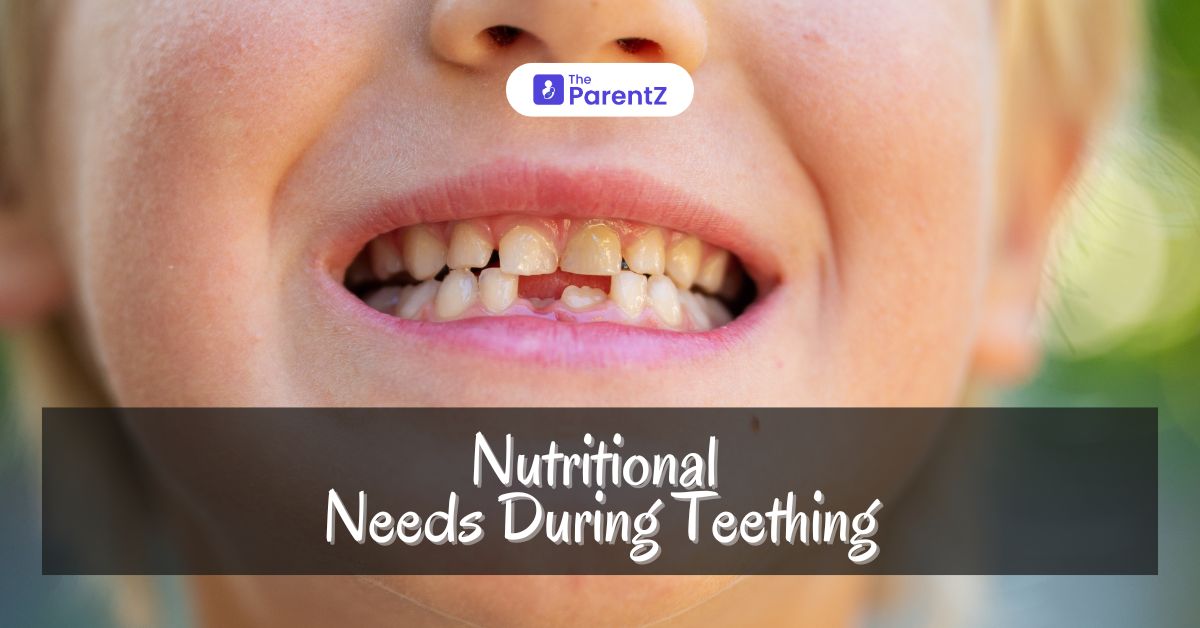Teething is a natural process that marks the emergence of a baby’s first set of teeth, but it’s not without its challenges. One significant aspect affected by teething is a baby’s dietary intake. The discomfort and pain associated with teething can disrupt standard feeding patterns, leading to changes in appetite and nutrition.
Discomfort and Pain
Babies experience discomfort and pain during teething as their teeth push through the gums. This discomfort can vary from mild irritation to more intense pain, depending on the individual baby and the stage of teething. The sensation of sore, swollen gums can make it uncomfortable for babies to eat, leading to reluctance or refusal to feed.
Changes in Appetite
The discomfort caused by teething can disrupt a baby’s appetite, leading to changes in feeding behaviour. Some babies may experience decreased appetite due to discomfort while eating. They may become fussier or more irritable during feeding times, making it challenging for parents to ensure they receive adequate nutrition.
On the other hand, some babies may seek comfort in breastfeeding or bottle-feeding, as sucking can provide temporary relief from teething pain. This increased feeding frequency may lead to changes in feeding patterns, including more frequent, smaller feeds throughout the day and night.
Nutritional Implications
The changes in appetite and feeding patterns associated with teething can have nutritional implications for babies. A decreased appetite may reduce calorie and nutrient intake, potentially impacting growth and development. Babies may miss out on essential nutrients crucial for their overall health, such as protein, vitamins, and minerals.
Additionally, the reliance on breastfeeding or bottle-feeding for comfort during teething may affect the balance of nutrients consumed. Babies may consume more breast milk or formula than solid foods, potentially leading to imbalances in their diet. Parents need to offer nutrient-rich foods and encourage healthy eating habits during this time to ensure their baby receives adequate nutrition.
Managing Teething-Related Dietary Challenges
While teething can present challenges to a baby’s dietary intake, there are strategies parents can employ to help manage these issues:
- Offer Cold or Frozen Foods: Cold foods can help soothe sore gums and relieve teething pain. Offer chilled fruits, yoghurt, or teething biscuits to help alleviate discomfort during feeding times.
- Provide Comforting Foods: Soft, easy-to-eat foods like mashed bananas, cooked vegetables, or smoothies can be gentler on sore gums and more appealing to babies experiencing teething discomfort.
- Maintain Hydration: Ensure your baby stays hydrated by offering frequent breast milk, formula, or water, depending on their age and feeding preferences. Increased drooling during teething can lead to dehydration, so it’s essential to encourage adequate fluid intake.
- Monitor Nutrient Intake: Pay attention to your baby’s nutrient intake during teething and ensure they receive a balanced diet. Offer a variety of nutrient-rich foods to meet their nutritional needs, even if their appetite is reduced.
Dietary Don’ts
- Avoid Hard Foods: Hard foods such as nuts, raw carrots, and popcorn can pose a choking hazard and may exacerbate discomfort during teething. Steer clear of these foods until your baby’s molars fully erupt and they have developed adequate chewing skills.
- Limit Sugary Treats: While offering sugary treats or snacks to comfort a teething baby may be tempting, excessive sugar consumption can harm their emerging teeth. Limit sugary foods and beverages to protect their dental health and prevent tooth decay.
- Be Cautious with Acidic Foods: Acidic foods and beverages such as citrus fruits and juices can irritate inflamed gums and exacerbate discomfort. Limit acidic foods in your baby’s diet during teething to minimise potential discomfort.
- Avoid Frozen Foods: While cold foods can relieve, avoid offering frozen foods or objects directly to your baby’s gums. Extreme cold can cause tissue damage and may worsen inflammation. Always chill teething toys or foods in the refrigerator rather than the freezer.
Conclusion
Teething can significantly impact a baby’s dietary intake, affecting appetite, feeding patterns, and overall nutrition. By understanding the challenges associated with teething and implementing strategies to manage them, parents can help ensure their baby receives adequate nutrition during this milestone phase of development. Parents can help their teething baby navigate this challenging time with patience, support, and proper care while promoting their health and well-being.





Be the first one to comment on this story.